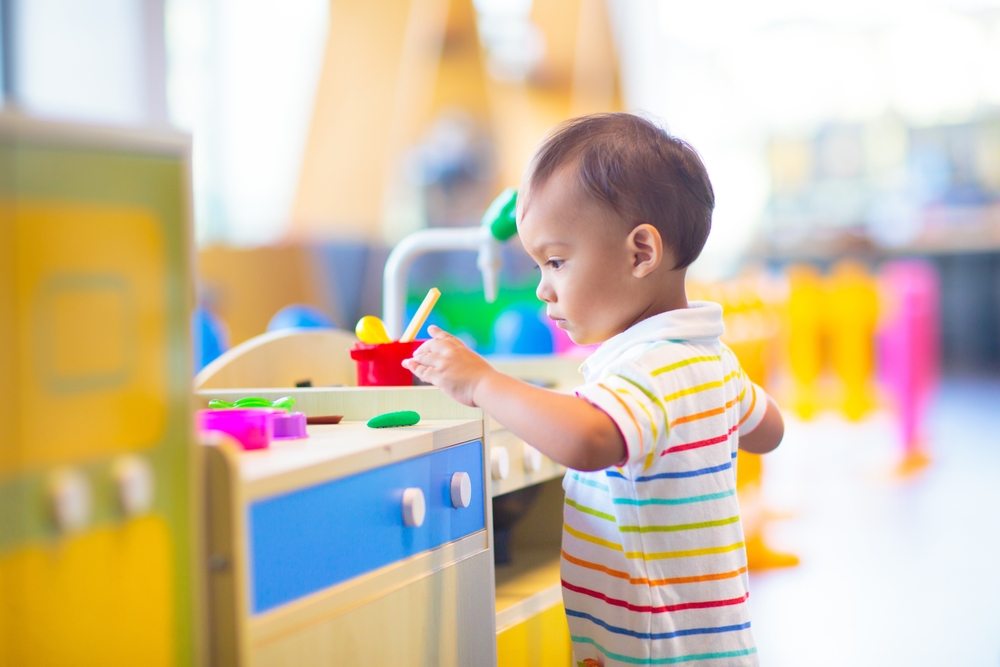Starting preschool is an exciting milestone for both parents and children. For many, it’s the first step into structured learning and social environments. But beyond the fun activities and new friendships, preschool plays a crucial role in preparing young children for kindergarten and setting a strong foundation for lifelong learning. Here’s how preschool equips children with the skills and confidence they need to thrive in school and beyond.
1. Developing Key Social Skills
One of the most important aspects of preschool is the opportunity it provides for social interaction. In a structured setting, children learn to:
- Work with others: Group activities like story time, art projects, and games teach children to collaborate and cooperate with their peers.
- Share and take turns: Learning to share toys, resources, and attention helps children understand fairness and empathy.
- Express their feelings: Preschoolers learn to identify and express emotions in a healthy way, essential for building emotional intelligence.
These social skills are crucial in kindergarten, where students need to navigate group settings and work harmoniously with others.
2. Building a Strong Foundation in Early Literacy and Math
In preschool, children are introduced to basic literacy and math skills through engaging, play-based activities. These foundational skills make it easier for them to transition into more formal learning in kindergarten:
- Early literacy: Storytime, singing, and interactive reading sessions help build vocabulary, comprehension, and an early love for reading.
- Math concepts: Simple activities like counting blocks, sorting shapes, and understanding patterns introduce preschoolers to early math concepts, laying a solid groundwork for more complex problem-solving skills.
By establishing familiarity with these skills early on, preschool makes kindergarten lessons less intimidating and more exciting.
3. Encouraging Curiosity and Independence
Preschool nurtures curiosity and a desire to learn. Teachers encourage children to ask questions, explore their surroundings, and try new things. This early development of curiosity is essential for academic growth:
- Problem-solving: Preschoolers engage in activities that challenge them to think critically and make decisions, building problem-solving skills they will use throughout their education.
- Self-confidence: Gaining independence in preschool—like choosing activities, managing their own belongings, and following routines—boosts children’s self-confidence. This confidence allows them to enter kindergarten feeling capable and ready to take on new challenges.
4. Establishing Routines and Following Directions
Kindergarten classrooms often have a structured schedule, which can be a big adjustment for young children. Preschool helps children acclimate to routines, making the transition smoother:
- Understanding routines: From snack time to circle time, preschool introduces children to a daily routine, helping them feel comfortable with structure.
- Following directions: Teachers guide children in following multi-step directions, which becomes essential in kindergarten when students are expected to manage their own tasks and follow classroom rules.
Through these structured experiences, preschoolers learn to navigate transitions, a valuable skill that prepares them for kindergarten’s more demanding schedule.
5. Developing Fine and Gross Motor Skills
Preschool activities are designed to strengthen both fine and gross motor skills, which are critical for many kindergarten tasks:
- Fine motor skills: Activities like cutting with scissors, drawing, and playing with small objects build the fine motor skills needed for writing, coloring, and other hands-on tasks in kindergarten.
- Gross motor skills: Running, jumping, and playing outdoors improve coordination and physical confidence, supporting overall health and readiness for physical education in school.
These skills are foundational, ensuring children are physically prepared for kindergarten activities.
6. Nurturing Emotional Resilience
Leaving home and spending a day at school can be challenging for young children, and preschool helps ease this separation. By gradually building independence, preschool supports emotional resilience:
- Managing separation: Preschool gives children the chance to learn how to separate from parents for a few hours a day, making the longer kindergarten day less daunting.
- Self-regulation: Through guided play and structured activities, preschoolers practice patience, waiting their turn, and managing impulses—all crucial skills for kindergarten success.
Final Thoughts: The Big Picture
Preschool is more than just an introduction to letters and numbers—it’s a holistic experience that prepares children for the next big step in their educational journey. From learning how to express emotions to developing curiosity and resilience, preschool fosters a well-rounded foundation.
By the time they enter kindergarten, children who attended preschool are often more confident, independent, and ready to engage with new challenges. As a parent, choosing preschool means giving your child a head start, setting them up for a positive, rewarding school experience that builds a love for learning from day one.
If you’re looking for a preschool in San Antonio that prioritizes getting your child ready for school and beyond, book a tour with I’m Just a Kid and see the difference preschool makes for our students!
